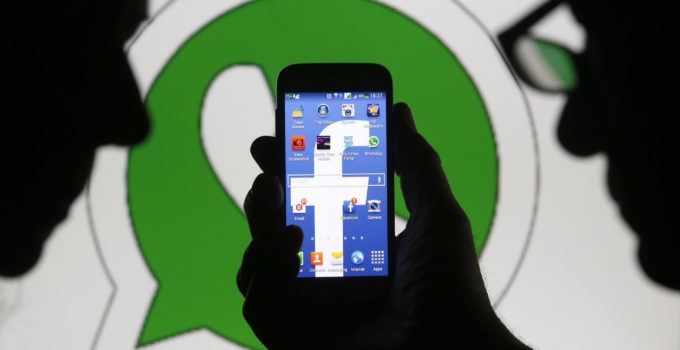Economist Bashes Libra, Mocks Facebook Crypto as ‘Fake Money’

Facebook's crypto plans have incited backlash from regulators and politicians. | Source: AP Photo / Andrew Harnik
In a new article called “Facebook’s Fake Money,” economist Thorsten Polleit bashes Facebook’s foray into cryptocurrency through its Libra token.
Facebook Libra Isn’t Sound Money
Far from alone in his criticism of Facebook’s fintech ambitions, Polleit bases his doubts on an entirely different set of metrics than do legislators and regulators.
Pointing out that consumers may actually like the Libra, Polleit then writes :
“The critical question, however, is this: Is the Libra really good — or sound — money? Unfortunately, this question cannot be answered in the affirmative. The reason is this: The quality of the Libra depends on the quality of the underlying fiat currencies — and fiat currencies do not make for good money, as should be well known by now. Fiat currencies are inflationary; they enrich some at the expense of many others. The issuance of fiat currencies causes distortions in the credit markets, which provokes speculative bubbles and triggers booms and busts, and last but not least, fiat currencies lead the economies into over-indebtedness.”
“Sound money” is a term that has evolved over the years. Where once it might have referred exclusively to gold-backed currencies, it can now refer to things like Bitcoin.
Speaking of Bitcoin, Polleit – the chief economist at Degussa – doesn’t mention the godfather crypto at all. He does say that Libra presents a real threat to banking.
As New York’s Representative Carolyn Maloney asked: What if too much money goes into Libra, and is withdrawn from the traditional banking system?
“Traditional banks have good reasons to worry. The Libra is about to siphon transactions out of bank accounts and put them into the LA’s [Libra Association’s] hands. Not banks, but the LA will collect the fees and will receive precious data on who pays what, when, and where. The banks will be left even more in the cold should customers begin to use the Libra for savings purposes as well. Because then they would also lose the time and savings deposits with which they refinance their balance sheets at low costs. Or think of the credit business: The LA may at some point also provide its customers with short-term consumer loans.”
Libra’s Benefits Don’t Make It a Great Currency

While Libra itself isn’t vulnerable to runs – it has 1:1 for its tokens, under the best circumstances, in theory – could it cause bank runs as people hurriedly get out of their local economies?
Would that truly be a concern in the US, where people have relatively excellent access to banking?
Such concerns probably give Facebook too much credit, and banking too little.
It can’t be so bad that people would exit completely.
In most cases, access to a global market through something like Libra will just be an additional way to transact, not an exclusive one.
Concluding that Libra “does not appear to be driven by the desire to provide the people in this world with better money,” Polleit ignited a discussion in the comments of his article.
One person wrote, in part:
“Break the Cycle! Trust in Math! i.e. a monetary system based on consent that audits itself in real time to prevent ‘counterfeiting’ and only issues a set amount of monetary tokens…capped at 21million.”
Whatever your opinion of Libra, it’s definitely brought crypto front and center recently – for better or worse.